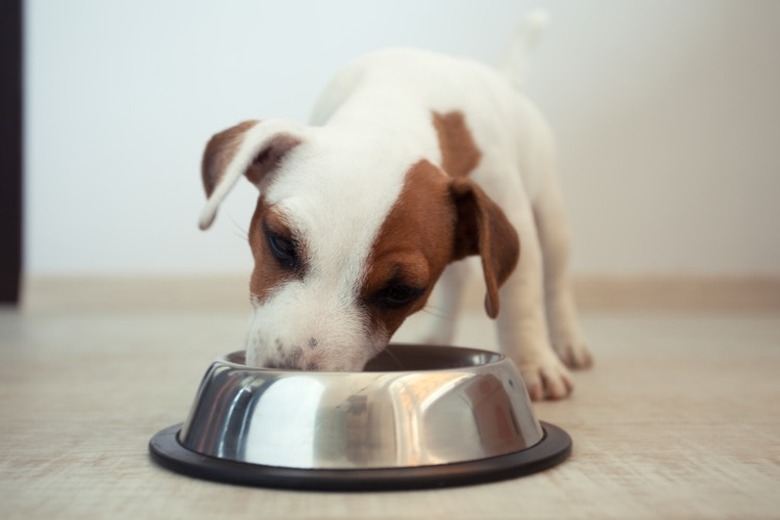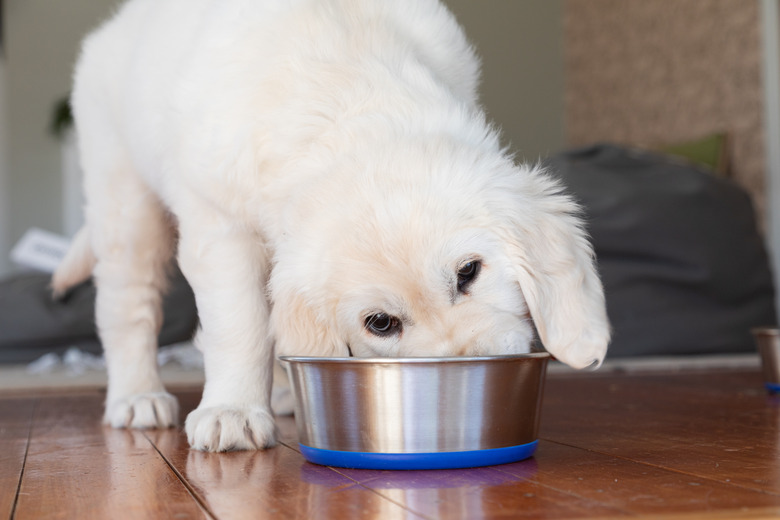How To Prevent Overfeeding A Puppy
What and how much a puppy should eat are common questions for new dog owners. The answers vary depending on breed and age. A new puppy shouldn't leave his litter until at least 8 weeks old, and by then, the breeder or shelter will have weened the dog and introduced solid food specifically formulated for puppies.
However, once he comes home, a puppy should eat more frequently throughout the day than an adult dog — but smaller portions. As a dog grows, portions should increase, but frequency should decrease. The first year of development is critical. Feed food specially formulated for puppies until 9 months for small breeds and up to 14 months for some larger breeds.
Frequency of feeding a puppy
Frequency of feeding a puppy
Puppies require more food than adult dogs, and they should eat more frequently. They are growing rapidly, and the first 4 to 6 months are critical for bone and organ development. Calcium should also be part of a puppy's diet more than an adult dog because bones are growing at a rapid rate. At this age, there's opportunity to avoid potential bone diseases or early onset arthritis with proper nutrition.
Puppies should eat small meals frequently throughout the day and the younger the dog, the more frequent. Frequency of feeding also depends on the breed. Very young toy breeds, for instance, need four to six servings a day, but larger breeds of the same age need three to four.
At about 4 months old, most puppies can transition to three meals a day. By 6 months old, puppies can eat two meals a day, but portions will likely still be larger than what an adult dog eats twice a day. More frequent eating helps a young puppy digest effectively and maintain her energy level. Puppies will naturally eat quickly, which is another reason to feed smaller portions, but they usually stop eating when they are full. However, it is possible to overfeed a puppy.
Overfeeding a puppy
Overfeeding a puppy
A puppy overeating might gain too much weight. It's possible to have an overweight puppy. While there are guidelines about how often to feed a puppy, determining the amount isn't as easy. Portion size depends on the individual metabolism of the dog, so watch body condition. A puppy should not be too visibly potbellied after 12 weeks old.
Puppies should start losing their rotundness, or baby fat, after 12 weeks old. If he is still plump at 14 or 15 weeks, reduce portion sizes rather than frequency. When a puppy starts to skip a meal, he might be ready to have the frequency of feeding reduced. Monitor the puppy's weight, shape, behavior, and quality of poop to determine quantity of feeding. Remove uneaten portions of food rather than leaving them on the floor for later.
Feeding puppy food
Feeding puppy food
Most dog breeders, veterinarians, and experts recommend feeding puppies food designed specifically for young dogs. The nutritional requirements are different at this age and are important because bones are forming. Premium foods are recommended because portions can be smaller, and the composition of the formula is more consistent. There's also differences between large-breed and small- breed puppy foods.
Small dogs under 20 pounds at adulthood can reach full-grown size by 9 months, so they should be switched to adult dog food around that time. Larger dogs will take anywhere from 13 to even 24 months to reach maturity, so they can eat puppy food as long as 14 months.
Illness from a puppy overeating
Illness from a puppy overeating
Overweight puppies face similar health issues as overweight adult dogs but perhaps sooner. Orthopedic problems can develop earlier if there is too much stress on immature bones and joints. Diabetes, heart disease, and tiredness are all illnesses exacerbated by obesity. Fortunately, puppy overeating is unusual if food is portioned correctly throughout the day.

